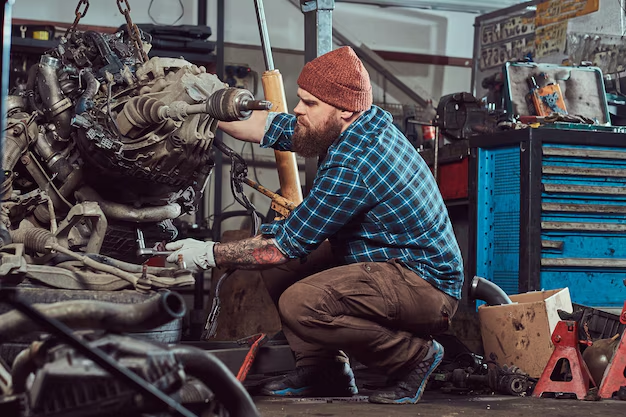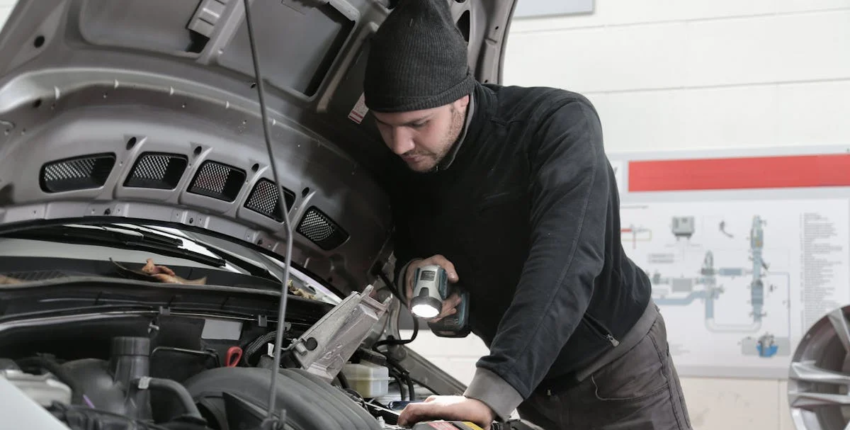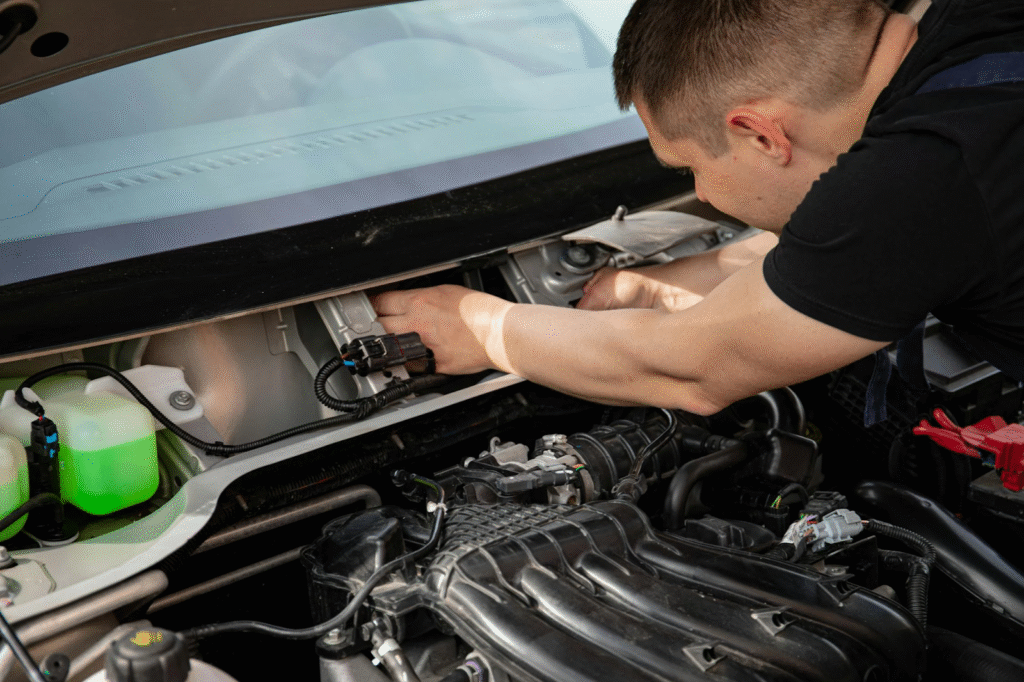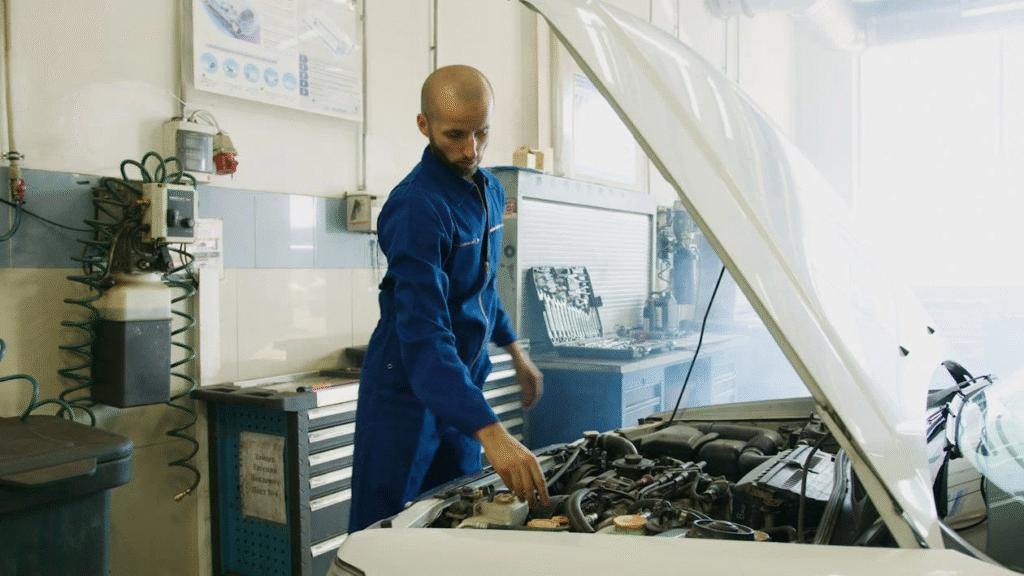- Telegraph Auto Repair
- Auto Repair
How Exhaust Service Improves Your Vehicle’s Performance and Efficiency
Most drivers think about oil changes, tire rotations, and brake services when it comes to maintaining a reliable vehicle. Yet there is one part of your car that plays a surprisingly important role in power, fuel economy, and everyday drivability: the exhaust system. It is more than a muffler under your car. It is a carefully engineered series of pipes, sensors, and components designed to guide exhaust gases safely out of the engine, reduce harmful emissions, and help your engine run at its best.
Keeping this system in good condition can make your entire vehicle feel smoother, quicker, and more efficient. That is why regular exhaust service matters. And if you are in Alexandria, VA, Telegraph Auto Care is one of the best places to have this important work done thanks to their certified technicians, upfront pricing, and customer-first approach.
This guide walks you through how the exhaust system works, why maintenance is essential, what signs of problems to watch for, and how professional service can improve performance, fuel efficiency, and long-term reliability.

Why Your Exhaust System Matters More Than You Think
When most people hear the word “exhaust,” they picture loud mufflers or clouds of emissions. The truth is, the exhaust system performs several important functions that directly affect how your vehicle drives.
It reduces engine noise. It directs harmful gases away from you and your passengers. It helps reduce pollution by working with your catalytic converter. Most importantly, it helps maintain the correct balance of air flow in the engine so your vehicle can run smoothly.
Modern engines rely on accurate oxygen readings, proper back pressure, and efficient gas flow. If any part of the exhaust system starts to fail, these factors can be thrown off, leading to sluggish acceleration, increased fuel consumption, and even engine damage over time.
Your exhaust system is not just a safety component. It is a performance component too.
What Makes the Exhaust System So Important?
The best way to understand the value of exhaust service is to take a look at the components that work together to move exhaust gases from the engine to the tailpipe.
Exhaust manifold
This part collects hot gases as soon as they leave the engine’s cylinders. Cracks or leaks here can cause loud noise, reduced engine performance, and poor fuel economy.
Catalytic converter
The catalytic converter reduces toxic emissions. If it becomes clogged or contaminated, your car may lose power, burn more fuel, or fail emissions testing.
Oxygen sensors
These sensors monitor the level of oxygen in the exhaust gases and send signals to your engine computer. When they fail, your fuel-to-air mix becomes inaccurate, which can create rough idling, poor acceleration, and noticeably lower gas mileage.
Resonator and muffler
These parts work together to reduce noise and ensure gases exit the vehicle smoothly. Rust or internal failure can lead to loud rumbling or rattling.
Exhaust pipes
These pipes carry gases safely to the rear of the car. Damage, corrosion, or loose connections lead to leaks, vibration, and overheating in engine components nearby.
Each part plays a role in keeping your engine breathing properly. When something goes wrong, you feel it not just in the sound of your car but in the way it drives every day.
How Exhaust Problems Affect Vehicle Performance
Many drivers are surprised to learn just how much an exhaust issue can affect everyday performance.
Reduced acceleration
If the exhaust system cannot efficiently remove gases, back pressure increases. This makes the engine work harder and reduces its ability to accelerate quickly.
Poor fuel economy
Old sensors, leaks, or a clogged catalytic converter can confuse the engine computer and force it to use more fuel than necessary.
Rough idling and misfires
An incorrect air-fuel mixture caused by faulty oxygen sensors or leaks can create rough operation and, in more severe cases, misfires.
Higher engine temperatures
If exhaust gases are not exiting properly, the engine runs hotter. Over time, this can stress engine components and reduce longevity.
Loud or unusual noises
Rattles, hissing, or deep rumbles are often signs of loose or damaged exhaust components.
A healthy exhaust system supports a healthy engine. When it is neglected, the entire powertrain suffers.
The Performance Benefits of Exhaust Service
Routine exhaust service can provide immediate and long-term improvements to your vehicle’s overall performance.
Better engine breathing
Engines rely on efficient airflow, both in and out. A smooth-flowing exhaust system allows gases to exit quickly, which helps the engine take in fresh air more efficiently. The result is better throttle response and smoother acceleration.
Improved fuel efficiency
When oxygen sensors work correctly and no leaks disrupt the air-fuel ratio, your vehicle uses fuel more efficiently. Even a small leak or failing sensor can cause you to lose several miles per gallon. Correcting those issues often delivers noticeable improvements.
More consistent performance
A maintained exhaust system keeps your engine computer supplied with the correct information. This allows your vehicle to adjust fuel delivery properly, which leads to steadier idling, smoother shifting in automatic transmissions, and more predictable performance overall.
Lower risk of expensive repairs
Catching leaks, rust, failing sensors, or a weakening catalytic converter early prevents more serious issues like engine overheating or misfires. Exhaust repairs that are inexpensive at first can become costly when ignored.
How Exhaust Service Enhances Efficiency and Emissions
A properly working exhaust system does more than protect your engine. It also helps your vehicle run cleaner.
Accurate oxygen sensor readings
These readings help your engine stay within ideal efficiency. Faulty sensors can cause the engine to burn fuel too rich or too lean, both of which waste fuel and increase pollution.
Catalytic converter protection
A clogged or contaminated catalytic converter reduces fuel economy and increases emissions. Regular inspection ensures it continues working properly.
No leaks, no wasted energy
Leaks create unexpected airflow and confuse sensors. Repairing leaks restores stability to the engine and reduces unnecessary fuel use.
Drivers in Alexandria, VA also rely on proper exhaust performance for emissions testing. That is why having a clean, functioning system before your test can make the difference between passing and failing.
Telegraph Auto Care offers emissions testing with no appointment needed, making it convenient for drivers who need fast and accurate service.
Common Warning Signs That You Need Exhaust Service
Here are some of the most obvious signs your exhaust system needs attention:
- You hear loud rumbling, rattling, or hissing
- You smell exhaust fumes inside or near the cabin
- Your car accelerates slowly or feels sluggish
- You notice a drop in fuel efficiency
- Your check engine light stays on
- You hear clunking under the car when driving over bumps
- Your car vibrates more than usual
If you notice any of these symptoms, it is best not to wait. Exhaust issues often get worse over time and can become safety hazards if gases begin leaking near the cabin.
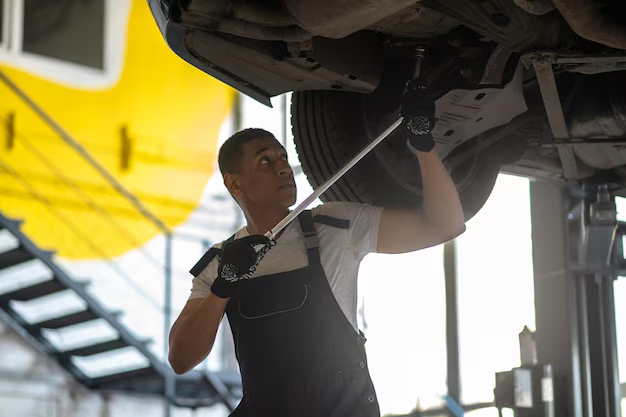
Why Choose Telegraph Auto Care for Exhaust Service?
Telegraph Auto Care in Alexandria, VA, has built a reputation for honesty, skill, and top-tier customer care. They treat customers with respect and they treat their technicians well. That combination results in work you can trust and service that makes you feel taken care of every time you visit.
Their team handles everything from mufflers and tailpipes to catalytic converters, oxygen sensors, and full exhaust diagnostics.
Whether you are chasing better performance, trying to improve fuel efficiency, or simply want your car to run smoothly and safely, they have the experience and equipment to get the job done right.
A Better-Performing Vehicle Starts with a Healthy Exhaust System
Your exhaust system has a direct impact on the way your vehicle drives every day. When it is clean, leak-free, and working as designed, your engine performs better, uses less fuel, and lasts longer.
If your car is louder than usual, feeling sluggish, burning more gas, or struggling to pass emissions, it may be time for a professional inspection. Telegraph Auto Care in Alexandria, VA, is ready to help. Their certified technicians can diagnose issues quickly and provide honest, reliable service that keeps your vehicle in its best condition.
Reach out today, stop by for emissions testing without an appointment, or schedule an exhaust system check to restore your vehicle’s performance and efficiency. Your engine will thank you every time you hit the road.


